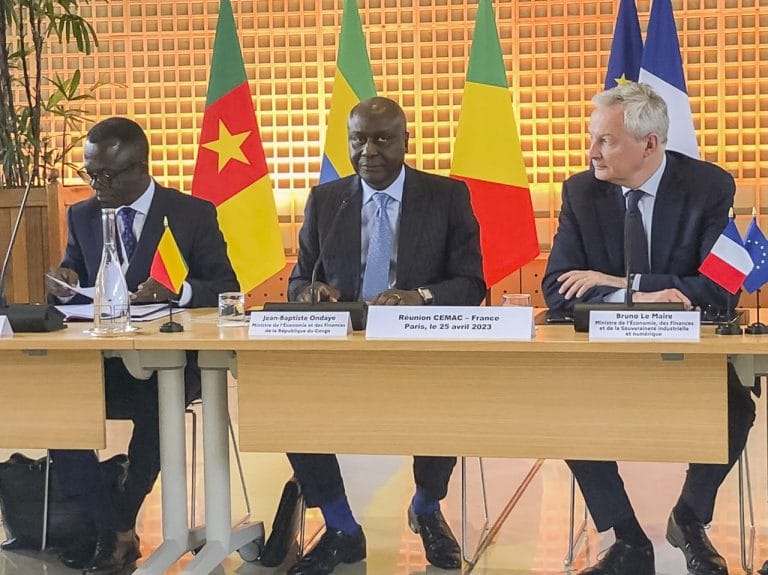🎧 Listen to This Article
On April 17, 2025, a high-level meeting brought together ministers of finance and economy, institutional heads, and central bank governors from France and the Central African Economic and Monetary Community (CEMAC) in Paris. This strategic dialogue, co-chaired by France’s Minister of Economy, Finance, and Industrial and Digital Sovereignty, Éric Lombard, and Equatorial Guinea’s Finance Minister Ivan Bacale Ebe Molina, addressed the critical economic and financial challenges facing the CEMAC region in 2025.
Objectives of the Meeting
The summit served as a key opportunity to strengthen cooperation between France and CEMAC member states and focused on two core priorities:
- Strengthening Resilience and Economic Financing in CEMAC (2025): Emphasis was placed on ensuring macroeconomic stability in the face of global inflation, fluctuating commodity prices, and fiscal deficits. Discussions included avenues for bilateral and multilateral financial support, including French commitments to ongoing IMF-backed reform programs.
- Advancing Regional Economic Integration: Leaders evaluated the progress of regional integration within CEMAC and explored mechanisms to promote inclusive and sustainable growth across member economies. Key themes included cross-border infrastructure investment, harmonization of tax and customs systems, and support for intra-African trade.
Strategic Importance of CEMAC–France Dialogue
CEMAC, comprising Cameroon, Central African Republic, Chad, Republic of the Congo, Equatorial Guinea, and Gabon, represents a strategically significant bloc within Africa’s monetary and fiscal landscape. Due to historical, linguistic, and institutional ties, France remains a key financial and technical partner.
Minister Charles M’BA of Gabon and Minister Mark-Alexandre Doumba emphasized the importance of continued monetary stability, exchange regulation reforms, and foreign investment facilitation as priorities moving forward.
France’s Pledge and IMF Support
France reaffirmed its support for:
- The implementation of fiscal and economic reform programs backed by the International Monetary Fund (IMF)
- Strengthening exchange regulation frameworks
- Technical cooperation on debt management and public finance modernization
This pledge underlines France’s strategic interest in a stable, sovereign, and regionally integrated Central Africa and its intent to support homegrown reform agendas.
Implications for Global Tax and Economic Policy
This high-level cooperation signals key tax and policy trends to watch:
- Increased regulatory harmonization among CEMAC countries could set the stage for unified tax policy and digital economy taxation frameworks.
- Resilience financing models may become templates for other African regions, particularly those involving IMF support and bilateral French aid.
- A push for currency and capital controls reform will shape foreign direct investment flows and compliance mechanisms for regional multinational corporations.
Conclusion
As global economic turbulence persists, regional alliances like CEMAC, supported by longstanding partners like France, will play a central role in defining Africa’s fiscal and monetary future. With a renewed focus on integration and resilience, the 2025 Paris meeting sets a hopeful tone for sustainable development across Central Africa.
For further details, clarification, contributions, or any concerns regarding this article, please get in touch with us at editorial@tax.news. We value your feedback and are committed to providing accurate and timely information. Please note that our privacy policy will handle all inquiries.



